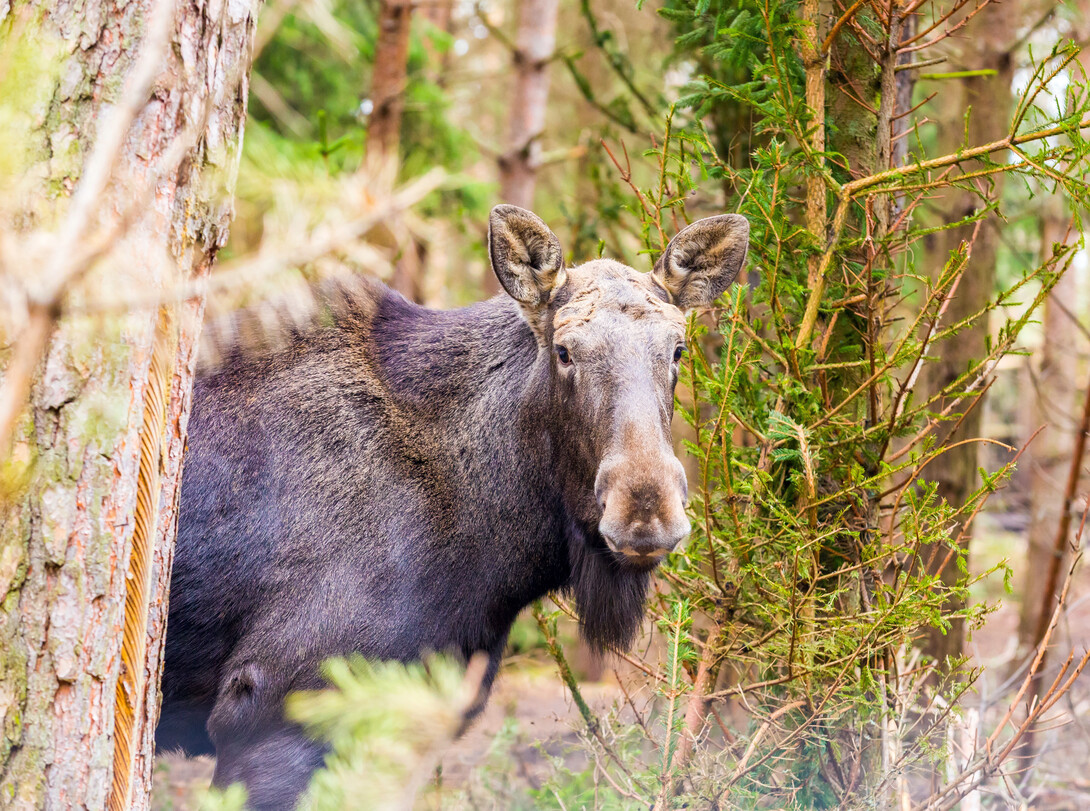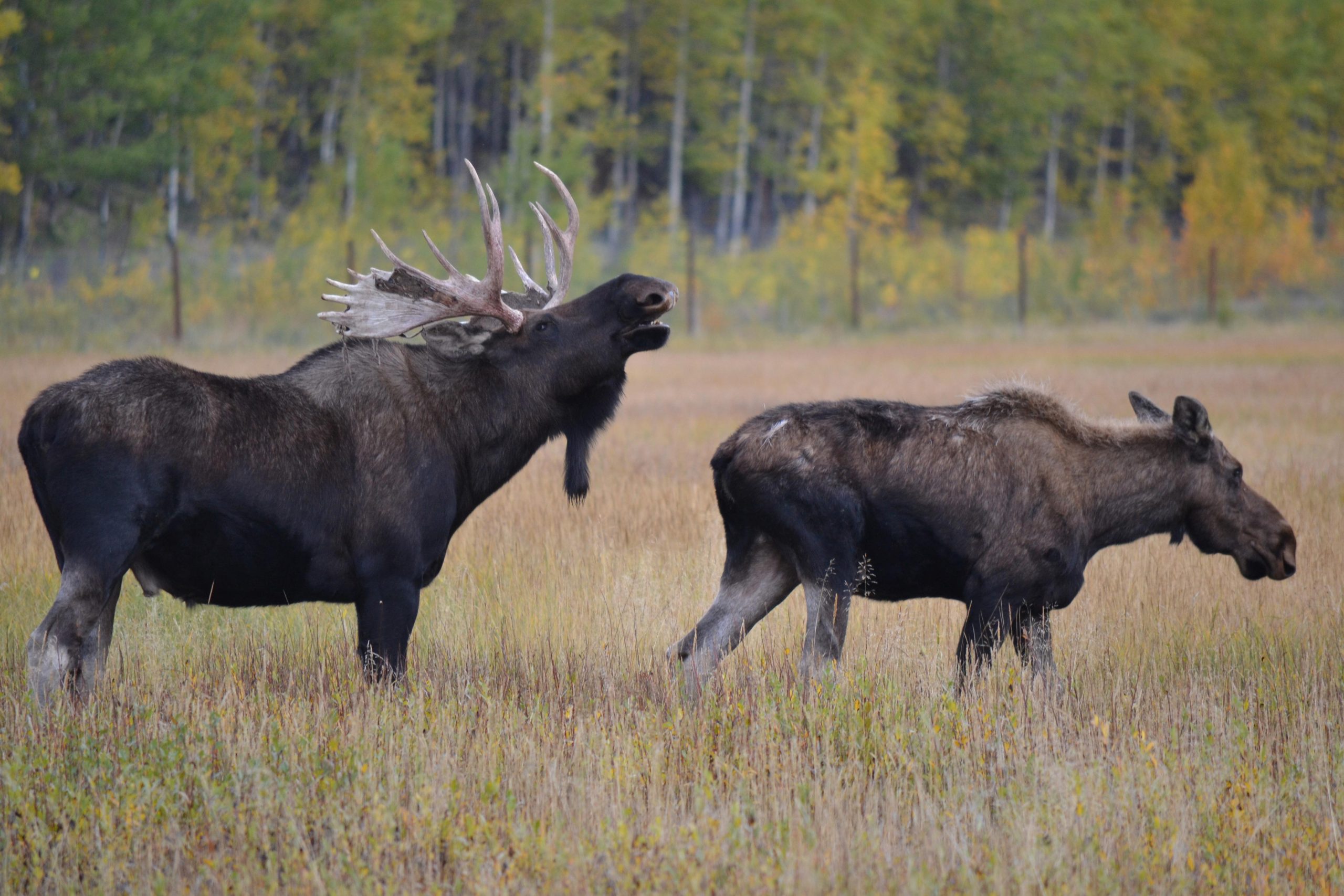Moose can grow up to 7 feet in height and weigh between 800 to 1,200 pounds. Moose are the largest members of the deer family and are known for their impressive size and distinctive appearance.
These majestic creatures are characterized by their long legs, humped shoulders, and broad, palmate antlers. Moose can be found in the forests of North America, Europe, and Asia, where they graze on a diet of leaves, twigs, and bark. Despite their size, moose are surprisingly agile and can run at speeds of up to 35 miles per hour.
With their unique characteristics and imposing presence, moose are truly a sight to behold in the wild.

Credit: northernontario.travel
Moose Height And Weight
Moose are known for their tall stature and impressive weight. They stand out in the animal kingdom due to their distinct features.
- Climate and habitat
- Genetics
- Diet and nutrition
Moose size is influenced greatly by external factors and genetic predispositions, impacting their height and weight.
Moose Physical Characteristics
Moose, the largest deer species, are known for their impressive height and weight. These majestic creatures can reach heights of up to six feet at the shoulder and weigh anywhere from 800 to 1,500 pounds.
Average Moose Height
Moose are large mammals known for their impressive height.
Average Moose Weight
The weight of a moose can vary significantly based on factors such as gender and age.
Factors Influencing Moose Size
Factors such as genetic makeup, diet, climate, and habitat play a crucial role in determining the height and weight of moose. These influences directly impact the size of these majestic creatures in the wild.
Factors Influencing Moose Size Moose, the largest members of the deer family, exhibit striking physical proportions that captivate the curiosity of wildlife enthusiasts. A variety of factors come into play when considering the height and weight of moose, which are essential to their survival and dominance in their habitat. Let’s delve into the key influences that determine the size of these majestic creatures.Genetics And Age
The genetic makeup of individual moose, inherited from their parents, directly impacts their ultimate size. Large-bodied parents are likely to produce offspring of a similar stature, while smaller parents may produce smaller offspring. Additionally, the age of a moose significantly affects its size. As moose age, they continue to grow and accumulate more mass, with their height and weight peaking at around 5-6 years old for males and 3-4 years old for females.Seasonal Variations
The changing seasons distinctly impact moose size. During the summer, moose benefit from abundant vegetation, allowing them to consume a high-calorie diet, ultimately contributing to weight gain. Conversely, winter brings scarcity, leading moose to rely on fat reserves and consuming less food, which can result in weight loss. The availability of food, coupled with the energy expenditure required for survival, plays a crucial role in determining a moose’s size throughout the year. By understanding the factors that influence moose size, we gain valuable insight into these remarkable creatures’ biology. From genetic predispositions to seasonal fluctuations, the height and weight of moose serve as a testament to nature’s intricate balance and the adaptability of these magnificent animals.
Credit: yukonwildlife.ca

Credit: www.amazon.com
Frequently Asked Questions On Moose Height And Weight
What Is The Average Height Of A Moose?
The average height of a moose is about 6 to 7 feet at the shoulder.
How Much Does A Moose Weigh On Average?
On average, a male moose weighs between 1200 to 1500 pounds, while females weigh around 800 to 1000 pounds.
Can Moose Be Taller Than 7 Feet?
Yes, it is possible for some moose individuals to exceed the average height and grow taller than 7 feet.
How Heavy Can A Male Moose Get?
The weight of a male moose can vary, but it can reach up to an impressive 1500 pounds.
Conclusion
Understanding the height and weight of moose is crucial for wildlife management. By analyzing these factors, researchers can better assess the health and behavior of moose populations. Additionally, this information aids in developing conservation strategies to maintain sustainable moose numbers.
Ultimately, the study of moose height and weight plays a vital role in preserving the natural balance of ecosystems.


